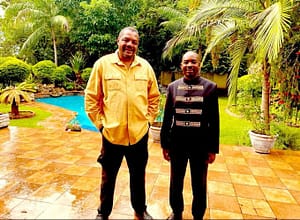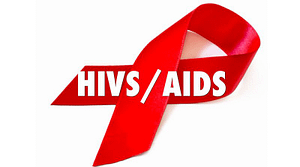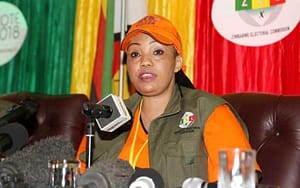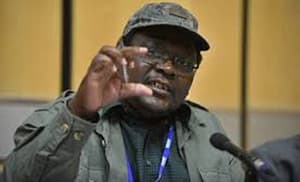South Africa set to extend Covid-19 grant to citizens for another year

The special Covid-19 social relief of distress grant is set to be extended for another year, when Finance Minister Enoch Godongwana presents his budget speech in February.
Several senior government officials told City Press that this was a certainty, and the only debate was whether to increase it from the current R350 to R460.
The temporary grant was first introduced at the start of the hard lockdown last year to cushion the economic impact of the Covid-19 pandemic.
Since then, pressure has been mounting on government to make it permanent and use it as a template for the introduction of a basic income grant, given the extent of grinding poverty in the country.
A presidency official said this week that, even though the fiscus was under severe strain, National Treasury would have to find money to allocate to the social relief grant line item.
“According to the National Treasury framework, there’s no money. If you look at the 2021 medium-term budget policy statement, you’ll see that there’s an unallocated reserve – for the medium term – of R73.2 billion. That line item wasn’t there before. It first appeared during Covid-19, suggesting that it was for unforeseen expenses,” said the official.
The source added that, although the cost of the grant in the medium term would be “way in excess of the unallocated reserve amount”, the presidency wanted the grant to continue, so National Treasury would have to find the money.
Currently, 9.5 million people receive a grant of R350 a month. Extending the grant by a year will cost government another R40 billion. Should it be increased to R460, the annual cost to government would be R52.4 billion.
MINISTER WANTS ANNUAL ADJUSTMENTS
More calls have been made for the continuation of the grant after March.
This week, the department of social development launched a report written by a panel of experts about the appropriateness and feasibility of institutionalising basic income support for South Africa.
The report recommended that the existing Covid-19 grant be institutionalised and eventually form a platform for an expanded system of basic income support, which could be improved incrementally over time.
Speaking at the virtual report launch this week, Social Development Minister Lindiwe Zulu said government believed that the expansion of the social assistance framework was the key to inclusive economic participation, the reduction of inequalities and raising a large number of South Africans out of poverty.Zulu said the grant should be implemented in tandem with employment creation and entrepreneurial support initiatives.
She added that, in light of the current fiscal constraints, the report showed how legitimate basic income support could be innovated to protect those aged between 18 and 59 who needed it.
In line with expert recommendations, Zulu said the special grant should continue at the current value into the 2022/23 financial year and be adjusted annually to an entry-level equivalent to the food poverty line at R595.
18- TO 59-YEAR-OLDS ALSO NEED SUPPORT
Wits School of Governance economist and social security expert Alex van den Heever, a member of the panel, said at the launch that 70% to 80% of South Africans lived in precarious and insecure conditions, with little prospect of any relief in the foreseeable future.
He added that 12 million people now lived below the food poverty line.
“While some form of support exists for children until their 18th birthday and for adults over the age of 60, no income support exists for adults aged between 18 and 59, unless they have a disability.
Van den Heever said: We found, however, that income support in the form of a basic income support grant was necessary, and that no alternative measures could reasonably address the widespread and urgent income support needs of the relevant adults.
He added that grant recipients should be increased from the current 9.5 million to 13.4 million initially, and eventually to a maximum of about 18.3 million. The grant amount should also be increased from the current R350 to R595 and eventually increased again.
“That will be determined by affordability,” said Van den Heever.
At the grant’s amount of R595, the state would need R56.2 billion a year for 13.4 million people and R78.8 billion for 18.3 million people.
Van den Heever said the findings would be taken to the department of finance to motivate for the implementation of basic income support, based on its necessity and feasibility.
FITCH RATINGS ALREADY EXPECTS PERMANENT GRANT
In its latest country credit outlook, the Fitch Ratings said pressure was mounting for a permanent social benefit programme for those not receiving unemployment, retirement or disability benefits in South Africa.
The ratings agency said that, in the most recent mini budget, the minister of finance had left the possibility of new social spending open.
It added that some of the cost – of about 0.8% of GDP per year – could be covered already by unusually large unallocated expenditure provisions.
“We assume that the social relief of distress programme, enacted temporarily to address the pandemic, with monthly payments of R350 to 9.5 million beneficiaries, will be made permanent. Greater social support – in the form of a basic income grant – is under discussion, but is unlikely to materialise, given fiscal constraints,” said Fitch.
National Treasury declined to comment on whether the special Covid-19 grant would be continued and possibly increased.
“This is a decision of government and will probably be announced in the state of the nation address or the budget speech. National Treasury will ultimately find the money if the president says it should do so … Also, Cabinet would need to approve this,” Treasury said in response to queries.
–City Press







